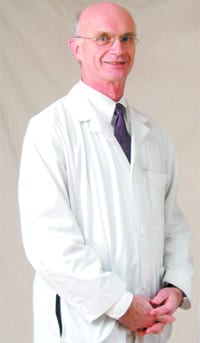The Rest of the Story Children and Teens Are Not Immune from
From sleepy air-traffic controllers to a snoozing vice president caught on television, we’re a dangerously sleep-deprived country. It is estimated that at least one-third of the nation is sleep-deprived.
And that includes children, too.
As pediatricians, we have been seeing more children today with sleep apnea, which most of the time is caused by enlargement of the tonsils or adenoids, but increasingly is the result of severe obesity. Oftentimes, removal of the tonsils or adenoids will cure their sleep apnea, and children who are obese must lose weight. However, after surgery by an ENT surgeon for sleep apnea documented on an overnight polysomnogram or sleep study, children will need to have a repeat study to be sure the issue has been successfully resolved.
Other common sleep problems in children include insomnia, nightmares, restless leg syndrome, sleepwalking, sleeptalking, night terrors, and snoring.
To identify whether your child may have a sleep problem, the American Academy of Sleep Medicine offers the following signs of possible sleep apnea:
- Your child wakes up repeatedly during the night;
- Your child snores very loudly or struggles to breathe during sleep;
- Your child’s behavior, mood, or school performance changes;
- Your child, who used to stay dry at night, begins to wet the bed; or
- Your child mouth-breathes and is restless and/or perspires a lot during sleep.
To put it simply, kids today are just not getting enough sleep. Teens, especially, have poor sleep hygiene and are prone to staying up late and talking on their cell phones or watching television until all hours of the morning.
According to a study by the Centers for Disease Control and Prevention (CDC), nearly 70{06cf2b9696b159f874511d23dbc893eb1ac83014175ed30550cfff22781411e5} of high school students are not getting the recommended hours of sleep on school nights. Also, a 2009 study in the journal Pediatrics reported that only 21{06cf2b9696b159f874511d23dbc893eb1ac83014175ed30550cfff22781411e5} of teens got at least eight hours of sleep during school nights.
Many adolescents and teenagers also suffer from delayed sleep-phase syndrome (DSPS) due to a mutation in the ’clock gene’ that sets our circadian rhythm. This makes it difficult for them to go to bed early, resulting in waking up later in the morning or afternoon, a typical pattern for many adolescents and teens today. It is for that reason that many schools are beginning later in the morning, such as 8:30 a.m. instead of 7:30 a.m. The result is that children don’t fall asleep in class, are more attentive, get better grades, and suffer from less depression.
Also, the CDC study found that sleep deprivation is associated with a variety of health-risk behaviors, including physical inactivity, drinking alcohol, smoking cigarettes, fighting, and being sexually active.
So, how much sleep do we really need? It depends on our age, and varies among individuals. In general, infants typically need 16 hours of sleep each day, while toddlers ages 1-3 routinely need between 10 and 12 hours of sleep. Teenagers require nine hours of sleep to fully function at school, but often receive less. And adults need at least seven to eight hours of sleep to get through the day.
One of the common mistakes parents make when it comes to ensuring that their child gets enough sleep is not setting limits. Parents need to make sure their child is going to bed when he or she is supposed to. Equally important is making sure there is no television, computer, or cell phone in their room which they otherwise might be on all night.
The American Academy of Sleep Medicine offers the following tips to help your child sleep better:
- Follow a consistent bedtime routine. Set aside 10 to 30 minutes to get your child ready to go to sleep each night;
- Establish a relaxing setting at bedtime;
- Interact with your child at bedtime. Don’t let the TV, computer, or video games take your place;
- Keep your children away from TV programs, movies, and video games that are not appropriate for their age; and
- At bedtime, do not allow your child to have foods or drinks that contain caffeine, including chocolate and sodas. Try not to give him or her any medicine that has a stimulant at bedtime, such as cough medicines and decongestants.
If you suspect that your child has a sleep problem, talk to your child’s pediatrician, who may recommend a visit to a pediatric sleep specialist. Doing so will not only benefit your child, but you as well, since your own sleep may be disrupted when dealing with a child who cannot or will not go to sleep.
Baystate Medical Center’s Neurodiagnostics and Sleep Center provides the latest high-technology testing and diagnosis for all types of sleep disorders, including sleep apnea, narcolepsy, restless leg syndrome, snoring, and sleepwalking. v
Dr. Anthony Jackson is chief of Pediatric Neurology at Baystate Children’s Hospital. For more information about the Neurodiagnostics and Sleep Center, visit baystatehealth.org and click on the ’services’ tab, then on ’neurodiagnostics.’


